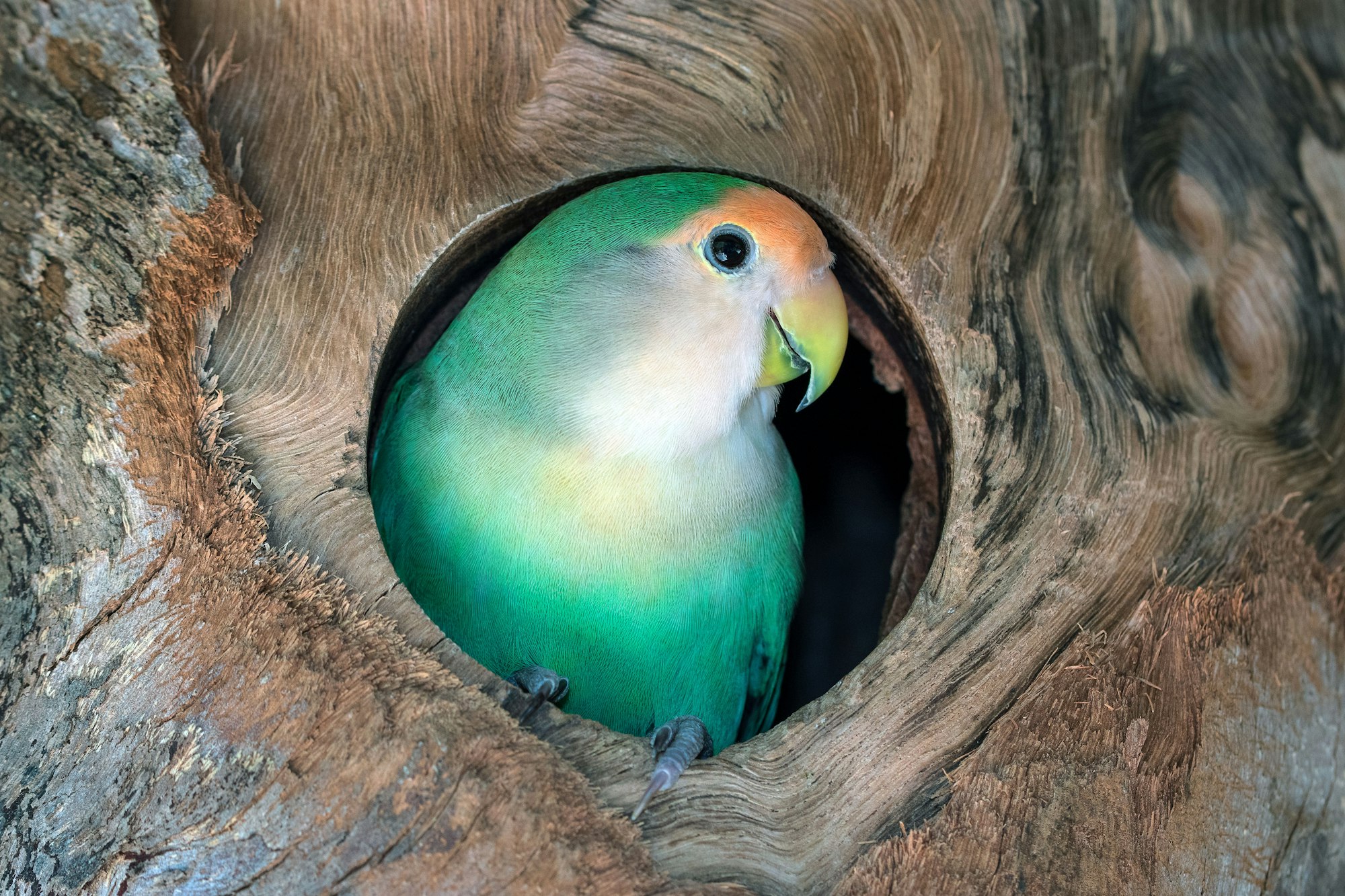The Definitive Guide to Taking Care of Lovebirds in 2023
Whether you're just thinking about getting a lovebird or have had one for years, this blog is for you! Discover everything from diet and exercise to housing and toys. Get ready to learn all there is to know about lovebirds in 2023.

Lovebirds have long been a popular pet choice for animal lovers, and for good reason. These small, colorful birds make wonderful companions, and can be quite easy to care for when done correctly. In this guide, we’ll cover all the basics of taking care of your lovebird in 2023.
Housing & Environment
Lovebirds need ample space to move around and exercise, so it's important to provide them with a large enough cage. It should be at least 18x18x18 inches for one bird and 24x24x24 inches for two birds — bigger is even better! The cage should also be stainless steel or powder-coated metal (not galvanized). Other materials may contain toxins that could harm your bird. Line the bottom of the cage with paper towels or newspaper as litter.
Your lovebird's environment should also include plenty of toys and perches. Wooden perches are best because they allow your bird to keep its nails trimmed naturally — plus they come in many different shapes, sizes and textures so you can find something your bird likes! Toys are essential too; look for ones that stimulate your bird mentally (such as puzzles) as well as physically (like swings). Rotate these regularly so your lovebird doesn't get bored.
Grooming & Health Care
Lovebirds require regular grooming just like any other pet. Give them baths every few weeks (or more often depending on how dirty they get) using lukewarm water and mild shampoo specifically designed for birds — never use human shampoo on your pet! Trim their nails using special bird nail clippers which you can buy online or at most pet stores — be careful not to cut too short though! You'll also want to check in with a vet annually for an exam and any vaccinations that may be necessary in your area. This is especially important if you've adopted an older lovebird from a rescue organization — they may have unknown health issues that need addressing right away!
Feeding & Diet
Lovebirds are omnivores, which means that their diet should include both plant and animal matter. Offer them fresh fruits like apples, bananas and berries; vegetables like peas, carrots and spinach; grains such as millet or quinoa; cooked eggs; cooked meats such as chicken or fish; and a variety of seeds like sunflower or safflower seeds. Avoid giving them avocado, onions or garlic since these can be toxic to birds. Also avoid processed foods as much as possible — stick to healthy options! Your lovebird will also need access to water at all times — use a shallow bowl rather than a bottle since this will help prevent dehydration if their drinking water gets contaminated by bacteria or other contaminants.
Caring for lovebirds isn't complicated but it does take some time and effort on your part. With the right setup, diet, grooming routine and health care plan though you can ensure that your little friend has everything he needs to thrive in 2023! Be sure to research species-specific information before bringing home any new pet so you can give him the best life possible from day one.
If you are looking for the best food to keep your lovebird healthy and happy, look no further! Our carefully curated list on Amazon is sure to have something that suits every budget. Not only will you find the perfect food, but you'll be supporting local businesses while doing so. Plus, Amazon's unbeatable selection makes it easy to compare prices, nutrition information, and more right at your fingertips. Tap the link below now and check out our top picks today - your feathered friend will thank you!
